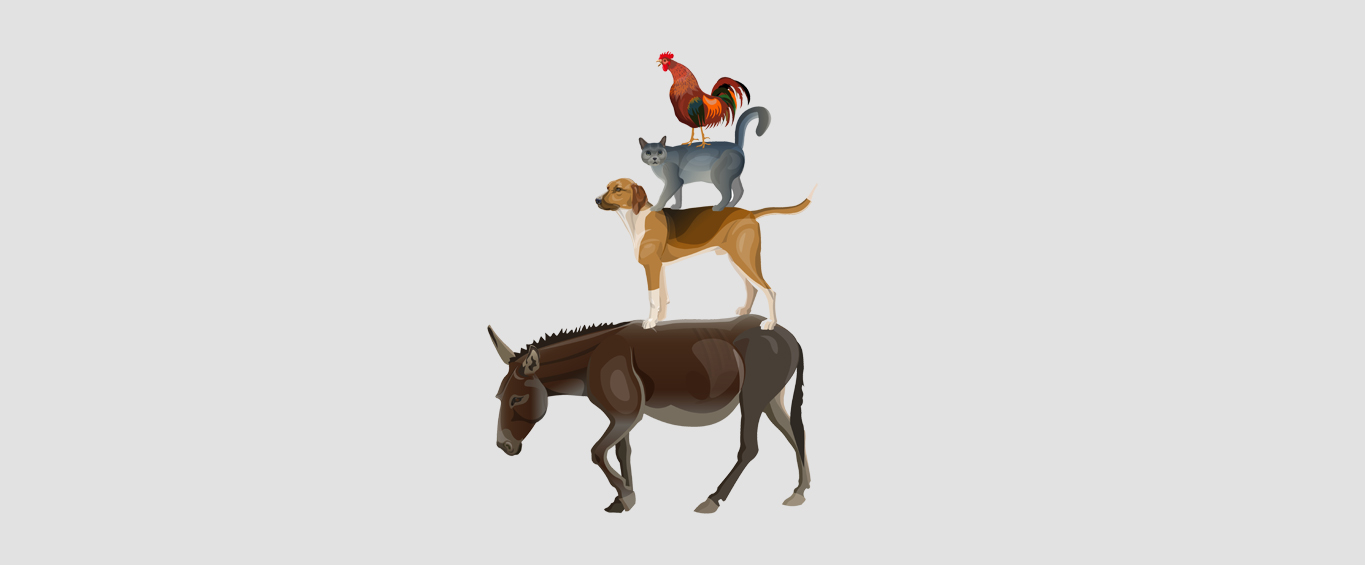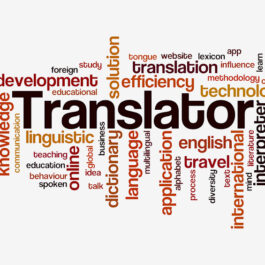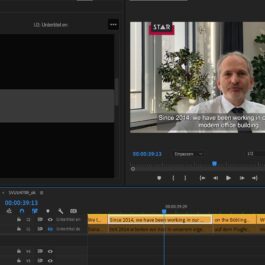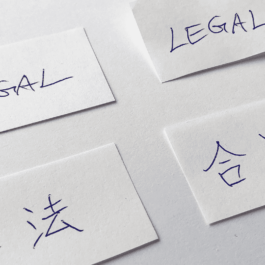You can tell how diverse a language is just by looking at the breadth of its idioms. These turns of phrase vividly describe emotions or situations, often through associations with the animal world. It’s no wonder animals feature so heavily in idioms, given that man and beast have been living side by side for thousands of years. However, the same attributes aren’t always associated with the same animals in every culture. Furthermore, the natural habitats of animals are dependent on specific aspects, such as climate, altitude, etc., meaning our different living conditions or customs have given rise to different idioms throughout history.
Idioms from the animal kingdom – literal translation is rarely the answer
In this post, we shine a light on some animal-based idioms from the French language, and explore their meaning in English. As you will see, the English equivalents often make either no reference to fauna or contain completely different animal associations.
The language of animals… let’s start with cows
- On n’a pas gardé les vaches ensemble
(literally: we have not herded cows together.)
This describes when someone is overly familiar. - Chacun son métier et les vaches seront bien gardées
(literally: if everyone does their job, the cows will be well tended.)
This essentially means ‘stick to what you know’. - Il pleut comme vache qui pisse
(literally: it’s raining like a cow that is urinating.)
In English, we famously (and perhaps inexplicably) describe such a downpour as raining cats and dogs. - Manger de la vache enragée
(literally: eat a mad cow)
This describes the sense of desperation when someone has fallen on hard times.
Our canine friends also feature highly in the language too
- Arriver comme un chien dans un jeu de quilles
(literally: arrive like a dog at a game of skittles)
This describes an unwelcome presence, such as a fly in the ointment - Entre chien et loup
(literally: between dog and wolf)
This expression describes the witching hour - Avoir du chien
(literally: to have dog)
In English, we turn not to animals, but to French, describing someone as having a certain ‘je ne sais quoi’. - Nom d’un chien !
(literally: name of a dog!)
This means: for heaven’s sake!
Wolf idioms
- Être connu comme le loup blanc
(literally: as famous as the white wolf)
We might describe someone who commands such presence as ‘a big fish’. - Avoir une faim de loup
(literally: to be as hungry as a wolf)
In English, we also reference animals to express the size of our appetite, by exclaiming “I could eat a horse!”. - Se jeter dans la gueule du loup
(literally: to plunge into the wolf’s mouth)
In English, it’s a bit more exotic: to walk into the lion’s den - S’approcher à pas de loup
(literally: to approach with wolves’ paws)
In English, we say: to be ‘as quiet as a mouse’ on approach
Fly on the wall…
There are many French expressions that reference flies, not all of which have animal-based equivalents in English:
- Prendre la mouche
(literally: take the fly)
A comparable English expression is taken from the bull-fighting arena: to see red. - Quelle mouche t’a piqué ?
(literally: which fly stung you?)
A similar English expression also comes from the insect kingdom: What’s bugging you? - On n’attrape pas les mouches avec du vinaigre
(literally: you can’t catch flies with vinegar.)
In English, we have a saying from Shakespeare: to kill them with kindness. - Faire mouche
(literally: make flies)
In English, we say someone has hit the bull’s eye – an expression borrowed from archery.
Let the cat out of the bag!
As in English, cats are proverbially popular in French – though not always translatable:
- Il n’y a pas un chat
(literally: there is not a cat around)
This simply means there’s not a soul to be seen anywhere. - Il n’y a pas de quoi fouetter un chat
(literally: there’s no need to whip cats over it.)
In English, we might brush off a situation with reference to another household pet, saying let sleeping dogs lie. - Appeler un chat un chat
(literally: to call a cat a cat)
In English, we call a spade a spade. - Donner sa langue au chat
(literally: to give your tongue to the cat)
Though we have a similar-sounding phrase in ‘the cat has got your tongue’, this actually means something different – namely to give up guessing.
Who rules the roost?
The cockerel is widely considered emblematic of France, and so it comes as no surprise that their expressions also focus on this feathered friend.
- Passer du coq à l’âne
(literally: to go from hen to donkey)
This means to change the subject abruptly. - Il devient rouge comme un coq
(literally: he turned as red as a cockerel.)
This describes the shade someone’s face might turn if they have egg on their face. - Vivre comme un coq en pâte
(literally: to live like a cockerel in pastry)
In English, we turn to a different creature for the expression: like the cat who got the cream.
Language is as diverse as the animal kingdom itself, and different imagery in idioms from different countries and cultures awaken completely different associations, as these illustrative examples clearly demonstrate. Despite our shared history, similar cultures and only a narrow stretch of water between us, French and English language are wildly different. This can result in misunderstandings, comical or even sticky situations. In our day-to-day lives, both at home and at work, our perception of the world determines whether we build bridges or burn bridges with our counterparts.
If you’re looking for perceptive translations that are targeted to your market, STAR combines high specialist expertise and intercultural awareness with many years of experience in the industry. You receive reliable quality in the language and the tone that you and your customers understand. We can help you – simply get in touch.


















